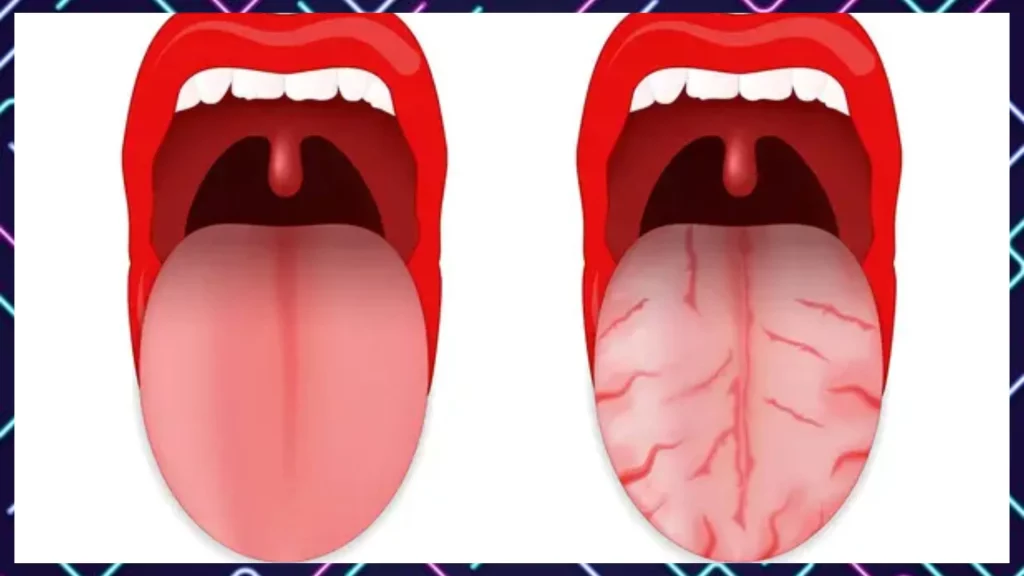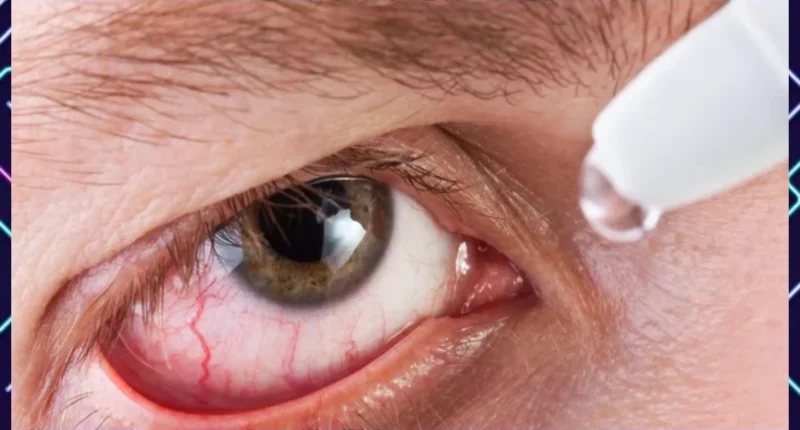Sjogren’s syndrome, otherwise known as Sicca syndrome is one of the most popular immune system disorders in the world. Statistically, about one to four million Americans are suffering from Sjogren’s with 90% being women and 10% men.
The Cleveland Clinic estimates that around 2 million people in the U.S. have Sjogren’s syndrome, which is significantly lower than the 1-4 million range mentioned in the query.
What Is Sjogren’s syndrome?
According to the National Institute of Arthritis and Musculoskeletal and Skin Sjogren’s syndrome is a systematic chronic autoimmune disease that affects the entire human body with more concentration on the tear and saliva glands. It’s an immune system condition that affects all ages including children but mostly diagnosed in older adults between the ages of 45 and 55 years.
This condition occurs when your immune system by mistake attacks connective tissues and cells in your body. In most cases, the saliva and tear glands plus other exocrine tissues are penetrated by the white blood cells causing less production of tears and saliva.
Sjogren’s syndrome is classified into two namely; primary and secondary Sjogren’s. Primary Sjogren’s develops alone while secondary Sjogren develops alongside other autoimmune tissue disorders such as lupus and rheumatoid arthritis.
However, both classes of Sjoregen’s have similar symptoms and can be dangerous if treatment is not administered on time. The worse of it is that when left on treated, Sjogren’s can cause severe tissue damage and other health conditions such as dry eyes, mouth, nose, skin, vagina and upper respiratory tract.
What causes Sjogren’s syndrome?
Sjogren’s syndrome causes are not clearly known currently. Studies, however, indicated that a combination of genetic and environmental factors may play a significant role in determining who develops this condition. The genes that increase a person’s risk of having Sjogren’s is mostly activated after contact with a viral or bacterial infection – causing the immune system to fight tissues it’s meant to protect.
Also, the tendency of a person to develop Sjogren’s depends on family history. That is if any of your relative or family member has been diagnosed with this condition your chances of having it is high. Research shows that about twelve percent of people with Sjogren’s have at least one of their relatives suffering from it.
The reason why Sjogren’s affects more women than men is still not clear. But it is believed that the estrogen hormone in women may play a role. According to research, a woman’s body is protected from Sjogren’s by estrogen, any lack or shortage in the levels of the hormone changes the immune function and causes the disease to happen.
In a nutshell, menopause may be the reason why more women are affected by Sjogren’s syndrome than men. At menopause, the level of estrogen in a woman’s body begins to decline.
What are Sjogren’s syndrome symptoms?

National Institute of Dental and Craniofacial Research shared that the symptoms of Sjogren’s are over a dozen but the two most common signs to look out for are dry eyes and dry mouth.
Dry eyes symptoms
- Pains in the eyes.
- Blurred vision.
- Stinging or burning sensation around the eyes.
- Sensitivity to all kinds of light.
- Puffed and irritated eyelids.
- Itching and redness of the eyes.
- Watery tearing in the eyes.
- Inability to drive at night because of car light.
- Sand feelings in or around the eyes.
- A weakness of the eyes or eyelids.
- Stringing mucus in around the eyes.
- Difficulty reading or interfacing a computer for a long period of time.
Dry mouth Symptoms
- Mouth sores or pains.
- Swollen salivary glands (located under the tongue, in the cheeks and the jaw).
- Dry or burning sensation in the mouth and throat.
- Broken or cracked tongue.
- Thick or stringy saliva.
- Mouth infections (such as yeast infection).
- Increased thirst.
- A change or loss of taste/smell.
- Dry or peeling lips.
- Problem talking/speaking, chewing or swallowing.
- Bad breath.
These main symptoms (dry eyes and dry mouth) affect the tears and saliva production in the body negatively. As a result, early diagnosis is critical in reducing Sjögrens ‘ impact on the eyes, mouth, and other organs.
Sjogren’s can also affect the throat, airways or genitals in the process.
A patient of Sicca syndrome can have just one or more than one symptoms. Below are other symptoms a person with Sjogren’s syndrome may have…
- Heartburn
- Brain fog (weak concentration or memory)
- Low-grade fever
- Vaginal dryness
- Recurrent infection
- Dry skin with patches or rashes
- Persistent dry cough
- General body weakness
- Extreme and chronic fatigue
- Ankle, wrist, or finger pains
- Increased dental decay
- Sensitivity to smoke, and fumes
- Nausea and stomach upset
- Irritable bowel
- A weakness of the kidney
- Inflammation of joints as well as muscle pain
- Difficulty in processing and Digesting foods
- Dry nose and recurrent sinusitis
- Numbness and pains in the arms or legs (peripheral neuropathy)
Who Is at risk of developing Sjogren’s (Sicca) syndrome?
Children, adults including males and females are at risk of developing Sjogren’s. Although, the chances are high for women who have reached menopause or are between the ages of 45 to 55 years. Being diagnosed with rheumatic diseases such as rheumatoid or lupus also increases your risk of developing Sjogren’s. Another factor that heightens your chances is your family’s medical history. If a minimum of one person from your family has been tested with Sicca syndrome you’re likely to have it.
Sjogren’s syndrome complications
Persistent Sjogren’s symptoms can lead to several unimaginable health conditions in patients. The two most common complications usually affect the eyes and mouth. Here are complications of Sjogren’s worth knowing…
Regular dental decay or cavities – result from changes that affect saliva production in the mouth. While adequate saliva in the mouth helps protect the teeth from bacteria and other mouth infections, less saliva causes dry mouth which in turn leads to dental decay or cavities and even loss of taste.
Infections – with Sjogren’s, you are at risk of developing a yeast infection in the mouth known as oral thrush. This infection may co-exist with other types of infections (eye infections dental infections, bronchitis, and vaginitis) associated with Sjogren’s.
Vision or eye problem – is one common complication of Sjogren’s syndrome. This disorder reduces the tear production of the eyes and causes eye dryness. Blurred vision, corneal damage, and light sensitivity are the main effects of dry eyes.
Lungs problems – inflammation of certain organs in the body such as the liver, kidneys, and lungs can trigger bronchitis, pneumonia, and other lungs conditions
Pregnancy complications – giving birth to a baby with a rash, heart condition or lupus is another complication of sicca syndrome. These problems mainly arise when specific proteins or antibodies exist in a to be mother’s body. Although these complications do not happen all the time, it is important you seek ideas from your Gp if you have Sjogren’s and planning a pregnancy.
Cancer – people with Sjogren’s are about five times more likely to develop non-Hodgkin lymphoma than those without the condition. Non-Hodgkin lymphoma is a type of cancer that affects the lymphatic system (Vessels and glands network) of the body.
Irritable bowel syndrome( IBS) – a lifelong condition that affects the digestive system and triggers tummy pain, constipation or diarrhea.
Peripheral neuropathy – involves damage in the nerves of the higher and lower limbs and consequently causes loss of sensation in the feet and hands.
Inflammation – of the kidney and the existence of kidney stones
Raynaud’s phenomenon – a condition that causes cold, numbness and pains in the hands and feet as a result of restrictions of blood flow.
Hypothyroidism ( underactive thyroid gland ) – this condition can induce tiredness and unwanted weight gain.
Blood vessel inflammation (vasculitis) – this can cause a rash that looks like tiny bruises or reddish-violet spots
10 key facts you should know about Sjogren’s syndrome

1. Sjogren’s syndrome is a condition of the human immune system that affects important organs responsible for the production of fluid in the body.
2. Sjogren’s negatively affects the quantity of saliva and tears a person produces.
3. People with Sjogren’s syndrome usually encounter other immune disorders such as lupus, rheumatoid and arthritis.
4. The two most common signs and symptoms of Sjogren’s syndrome are dry eyes (xerophthalmia) and dry mouth (xerostomia).
5. Sjogren’s syndrome is a kind of sexiest condition that majorly affects the female gender.
6. Adults who are over 40 years of age are more prone to developing Sjogren’s syndrome.
7. Sjogren’s syndrome can cause the liver, blood vessel, kidney, lungs, gastrointestinal system, pancreas and the central nervous system to have problems that may affect their functioning.
8. Diagnosis of Sjogren’s syndrome may require a physical examination, past medical records and laboratory tests such as blood tests, eye tests, mouth tests, and saliva gland biopsy.
9. Depending on the body organ affected, Sjogren’s syndrome treatment is not the same for everyone. For example, patients with dry eyes may have artificial tears and eye drop included in their treatment package. While those with a dry mouth will have regular water drinking or sucking on sugar-free candy added to their treatment plan.
10. Sjogren syndrome is not as deadly as thought as all its symptoms can be improved with the right treatment, NHS, MedlinePlus.









